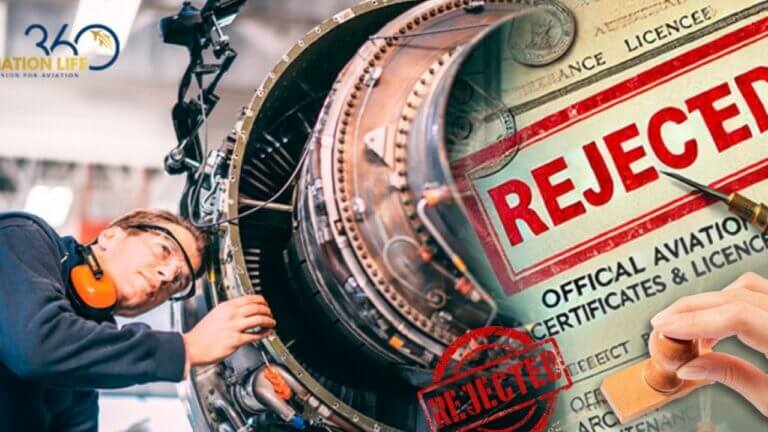Elevating Aviation Safety: The Crucial Role of Logistics in Aircraft Maintenance
Aircraft maintenance is crucial for ensuring flight safety and reliability, with logistics playing a central role. This strategic force manages the flow of parts, tools, and equipment efficiently, crucial in an industry facing increased regulations and demand. Logistics goes beyond mere supply chain management; it’s a vital safety component, continually adapting to new technologies and global networks.
Effective logistics are key to rapid maintenance responses. If an issue requires a part replacement, having the component readily available or a proficient logistics team that can swiftly source and deliver it is essential. For example, a grounded A320 can incur losses between €70,000 and €120,000 per day, highlighting the critical need for a maintenance and logistics team that operates nonstop. Through innovative logistics, planes not only remain operational but their long-term serviceability is significantly enhanced, supporting the aviation industry’s safety standards and economic efficiency.
Current State of Aeronautical Maintenance Logistics
Transforming Aviation: The New Era of Maintenance Logistics
Aviation maintenance logistics is undergoing a significant transformation. This sector is crucial for keeping airplanes flying smoothly and safely, but it’s facing more demands and disruptions from around the world, leading to delays and higher costs. Managing the logistics involves handling thousands of parts, each with strict regulations and necessary certifications, which makes the process complex and challenging.
To address these challenges, the industry is moving towards lean management principles, which focus on reducing waste and increasing efficiency. This shift helps in managing tight schedules and the quick turnaround needed for aircraft maintenance.
The introduction of digital technologies is also changing the game. Tools like data analytics, artificial intelligence (AI), and digital twins are becoming common in the maintenance, repair, and overhaul (MRO) sector. These technologies help predict maintenance needs in advance, allowing for better planning and reducing unexpected downtime.
Additionally, there is a growing trend towards sustainability and forming strategic partnerships. Companies are adopting environmentally friendly practices and collaborating on logistics services, tooling, and parts manufacturing. These efforts not only address current logistical challenges but also aim to create a more robust and efficient future.
Overall, as digital tools and sustainable practices become more integrated, they are setting new standards for how maintenance logistics are handled, making the aviation industry more efficient and reliable.
Technological Innovations of Artificial Intelligence and Their Impact on Aviation Maintenance.
AI: Simplifying and Streamlining MRO Supply Chains
Artificial Intelligence (AI) is revolutionizing the way we manage aircraft maintenance. By automating and optimizing many processes, AI helps overcome traditional challenges in the industry.
Smarter Inventory Management with Predictive Analytics
AI uses historical data to predict what parts will be needed in the future, ensuring that stocks are kept at optimal levels. This means having the right parts available when needed, without wasting money on excess inventory. It’s a smarter way to manage supplies, making operations leaner and more cost-effective.
Choosing the Best Suppliers with AI
AI evaluates suppliers based on their performance and market trends, helping maintenance operators pick the most reliable ones. This not only ensures better quality parts but also helps adjust buying strategies quickly, keeping up with market changes and maintaining competitive prices.
Optimizing Logistics Routes
AI helps plan the best routes for part delivery, reducing delays and cutting down on costs. This is especially important when quick repairs are needed, helping get airplanes back in the air faster.
Real-Time Monitoring for Quick Decisions
With AI, supply chain monitoring happens in real-time. This allows for immediate identification of any issues and quick action to solve them, enhancing the efficiency and responsiveness of maintenance operations.
Automating Compliance for Safety and Reliability
In the highly regulated aviation industry, AI automates the management of compliance documents, ensuring strict standards are met without errors. This enhances safety and reliability, reducing the risk of violations and penalties.
Logistical Challenges in Aeronautical Maintenance.
Overcoming Regulatory and Workforce Challenges in Aviation Maintenance.
Navigating the complex maze of global aviation regulations is a major challenge for maintenance, repair, and overhaul (MRO) providers. Keeping up with varying safety and quality standards requires a proactive approach and deep knowledge of regulatory affairs. The implementation of advanced compliance systems and regular training are essential to ensure uninterrupted adherence to strict standards worldwide.
Another pressing issue is the significant shortage of skilled technicians in the aviation industry. With many experienced professionals retiring, attracting and retaining new talent has become increasingly difficult. To bridge this gap, investing in extensive training programs and apprenticeships is crucial. Enhancing career appeal through better progression opportunities and workplace innovations can also help secure the necessary workforce.
In terms of cost management, MRO providers must balance maintaining high safety and quality standards with controlling operational expenses. Adopting lean management techniques, automating routine tasks, and using technology to streamline logistics can reduce costs significantly, enabling competitive pricing without compromising quality.
The recent global disruptions have highlighted the vulnerabilities in the MRO supply chain, such as part delivery delays and unpredictable demand shifts. Strengthening supply chain resilience is key, involving strategic stock management, diversifying suppliers, and using digital tools for better visibility and rapid response to disruptions.
By tackling these logistical challenges with strategic planning and technological integration, aviation maintenance providers can enhance efficiency and adaptability, ensuring their growth and compliance in a rapidly changing industry.
360 Aviation Life will be offering training in aircraft maintenance.
Elevate Your Career: Mastering Aeronautical Logistics with 360 Aviation Life.
360 Aviation Life proudly announces the upcoming launch of our Master Course in Aeronautical Logistics, designed to meet the growing demand for specialized skills in a rapidly evolving sector. This comprehensive program, developed with industry experts, will equip participants with both theoretical knowledge and practical skills to master the complexities of aeronautical logistics.
To conclude…
Steering into the Digital Future: The Critical Role of Training in Aviation MRO.
The aviation MRO industry stands at a critical juncture, facing complex logistical challenges and the dawn of a digital revolution. Embracing advanced technologies and sustainable practices is essential for enhancing predictability, efficiency, and sustainability. This transformative period highlights the need for reevaluating skills and training to navigate the future successfully, signaling a move towards an era of innovation, growth, and sustainability in global aviation.








